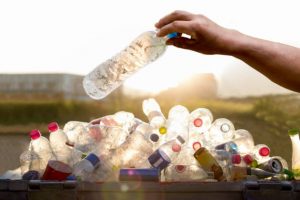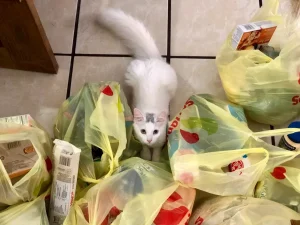In the construction sector, this can be seen in the refusal of developers from garbage chutes – you can hardly find them in modern residential complexes. Some developers have gone even further – they use eco-friendly materials for construction, set up parks and squares next to houses, install energy-efficient systems, organize separate waste collection on the territory. For those who also do not want to stay away from environmental problems, we have compiled a list of habits that can be implemented in life.

Save water
According to the UN, the global shortage of clean water will come in thirty years. Fresh water reserves are not unlimited and account for 2.5%. Everyone can contribute to reasonable consumption. To reduce consumption, turn off the faucet while brushing your teeth, shaving and lathering your hands. Avoid leaking plumbing, fully load the washing machine. For convenience, use modern gadgets, such as shower heads that regulate consumption.
Save energy
Most of the electricity is produced at thermal power plants, where fossil fuels such as gas and coal are burned. This leads not only to the depletion of reserves, but also to the emergence of a greenhouse effect in the atmosphere. To save energy, do not forget to turn off the light when leaving the room, give up ordinary light bulbs in favor of energy-saving ones, choose equipment labeled from A to AAA +. To illuminate the space, it is better to use point devices – floor lamps and lamps. You can also install dimmers (dimmers) that control the brightness of the lighting.
Practice mindful consumption
Conscious consumption refers to the balance between personal comfort and care for the environment while meeting one’s needs. In practice, this means giving up things whose service life is short-lived. For example, you can limit the use of disposable items and ditch useless, impulsive shopping and “fast fashion” in favor of quality clothing that will last for years.

A system of separate waste collection in each yard has recently been introduced, but so far it has been poorly established. It is possible to sort garbage into four categories – plastic, paper, metal and glass. If you want to be sure that the waste you collect will be recycled, check the nearest collection points on the recyclemap. ru. Caps from bottles and packages can be donated at the Good Caps points to participate in a charity project and help children.
Give things a second life
You don’t have to throw away things you no longer use. By giving them for secondary use, you can not only contribute to the environment, but also provide social assistance. For example, the Second Wind and Good Things foundations willingly accept good clothes, shoes and accessories; their collection points are located throughout the city. Books can be sent to bookcrossing shelves or donated to libraries, and unwanted household appliances and furniture can be sold.
Dispose of hazardous waste responsibly
Batteries, thermometers, electronics, fluorescent lamps and other hazardous waste must never be disposed of in the trash. They contain toxic elements that cause great harm to animals. For this reason, they must be handed over for recycling. All collection points are marked on the recyclemap. ru, while lamps and batteries are accepted by IKEA, VkusVill and Perekrestok stores.
Refuse excess packaging and packages
Plastic ranks first among the garbage polluting our planet, so it is important to reduce its use. Join the Break with the Bag campaign – take a shopping bag with you to go to the store, refuse products in plastic packaging where possible. You can carry coffee and water with you in a thermo mug and bottle, use glass instead of plastic straws, and completely refuse disposable tableware.
Dispose of food waste properly
Organic waste that is sent to landfill begins to release methane gas, which affects climate change. You can install a disposer under the sink – a food waste chopper. The use of this device will allow you to get rid of organic debris, and in this way your waste can later be used to produce heat and energy.
